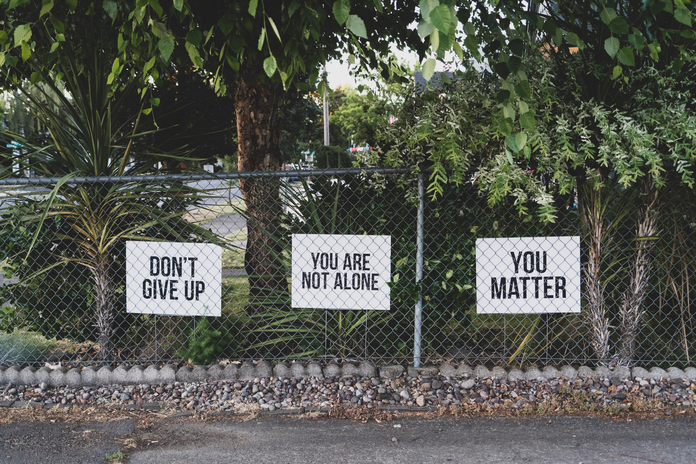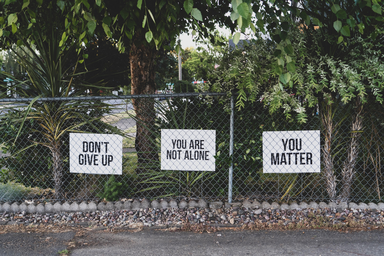As the days get shorter and the air grows colder, our mental health oftentimes gets hard to deal with. SAD, or Seasonal Affective Disorder, is a mental health disorder that occurs as the seasons change, typically settling in during the winter months. According to Mayo Clinic, SAD symptoms range from feeling depressed, having low energy, sleeping trouble, weight or appetite changes, difficulty concentrating and more.
Why do some people react this way to changing seasons? Scientists haven’t pinpointed it yet, but some theorize that it is caused by the disruption to your circadian rhythm or dropped serotonin and melatonin levels. Changes like these are typical during colder months, but they can trigger low mood or overall negative mental health in some people.
If you’re struggling with your mental health this winter, know that you’re not alone. It’s estimated that around 10 million people are going through hard times right now – whether it’s due to the pandemic, wintertime, general mental health issues or a combination of all three.
There are a number of things you can do to ease your symptoms – anything from using a lightbox, increasing your vitamin D intake, creating an exercise regimen or talking to your doctor about if medication is right for you. I’ve tried a number of these methods myself, and they’re all definitely worth a shot.
1. Light Therapy Box
I recently got a light therapy box in an attempt to minimize my symptoms. The light is supposed to mimic natural sunlight and encourage your body to produce the Vitamin D and endorphins that you naturally produce when you have more exposure to sunlight. Whether it’s a placebo or not, I find that I enjoy using it for about 30 minutes to an hour per day. That’s just my experience, so if you think you could benefit from some extra light in your day, definitely give this one a shot.
2. Increase Your Vitamin D Intake
The foods you eat have a major impact on your mental health and clarity, whether you realize it or not. I’ve recently tried to fix up my diet and add more ingredients high in vitamin D like mushrooms, fortified milk replacements (my favorite is oat milk in my chai lattes), eggs, yogurt, and even certain orange juices.
3. Create an exercise regimen
When your mental health is at a low, the last thing you want to do is get up and move. Everyone tells you that exercise will help your mental health, but I didn’t fully understand how right they were until I tried it myself. I joined a cheap gym for $10 per month just to get my body moving a few times a week, and the effect it has had on my mental clarity and overall mood is amazing. I definitely recommend you find something physical you enjoy doing – walking your dog, playing Just Dance or going to the gym as well – and try to stick with it consistently.
4. Talk with your doctor
If you find yourself feeling down and depressed most of the time, or unable to take care of yourself, there’s no shame in talking about it with your doctor. Going on medication for my depression and anxiety was not an easy step, but it has helped me immensely over the past 6 months or so. There’s absolutely no shame in needing some extra help.
5. Remember everyone is different
The suggestions I just gave you may not work out, and that’s okay. Remember that everyone is unique and each individual will have a different thing that works for them. It’ll take time and consistency to find what works, but you aren’t alone in your journey.



